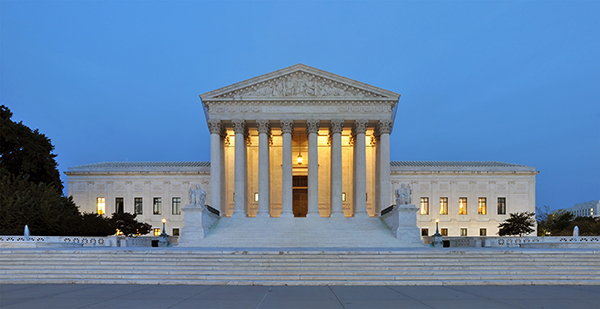
This Spring, the Supreme Court issued two highly anticipated decisions on the subject of liability exemptions for Internet-based corporations.
Twitter, Inc. v. Taamneh and Gonzalez v. Google LLC have captured the attention of the Internet Law field for over six years. In both cases, the families of terrorist attack victims sued Internet recommender systems—Twitter and Google, respectively—for their involvement with the attacks. Petitioners for both cases argued that recommendation algorithms led users to terrorist content and that Twitter and Google failed to control said content on their platforms. Both petitioners won at the district court level, but later found the charges not permissible under antiterrorism law from the Supreme Court.
What are internet recommender algorithms? Well, you may use these algorithms every day in search engines and web browsers. Google has dominated the search engine market, while Twitter and Facebook are giants in the social media sphere. All of these platforms use algorithms to suggest videos and articles that a user might find interesting.
These cases touched on the critical legal framework for Internet recommender algorithms. Among pertinent laws, Section 230 of the Communications Act of 1934 was mentioned more than once by the involved parties. Section 230(c)(1) provides immunity for an Internet service provider (ISP) from the content of third-party users; meaning, the Internet provider is not liable for content produced by its users.
The issue of Section 230 is not a new one. Professor Eric Goldman is widely considered to be a leading expert in the field of Internet Law. Wielding thirty years of Internet Law experience, he has written papers on Section 230 in the past, including on the topics of sex trafficking initiatives and the law’s relation to the First Amendment.
In a recent post to his Technology & Marketing Law Blog, Goldman summarizes the court’s decisions and adds his own commentary on the nature of Section 230 and Internet Law. Goldman elucidates the implications of the court’s decision in simple terms: “If the service wasn’t intentionally and manually optimized to help the terrorists, plaintiffs can’t show aiding-and-abetting.”
Goldman hasn’t been content to stand on the sidelines, either. He submitted a brief of amicus curiae in Gonzalez v. Google in support of Google, stressing that Section 230 adds to the protections of the First Amendment: “Section 230 represents a legislative policy choice to preference speech interests over other policy considerations.”
Professor Goldman has previously been featured on national outlets including ABC News, The Washington Post, Reuters, and the New York Times, discussing topics ranging from marketing and technology to social media algorithms and constitutionality. He currently teaches Internet Law courses at Santa Clara Law.